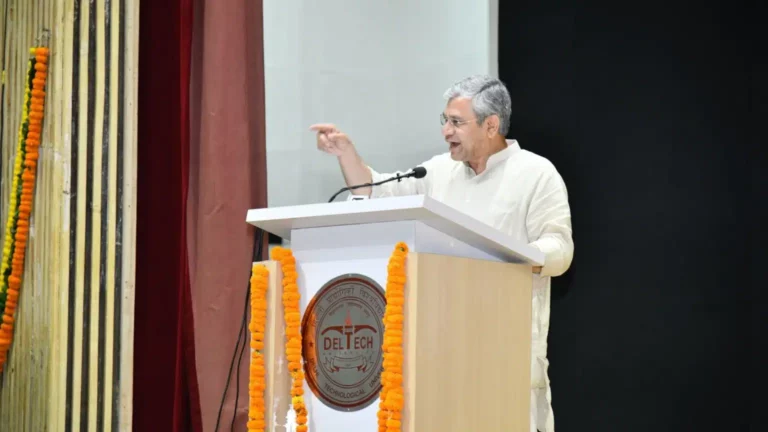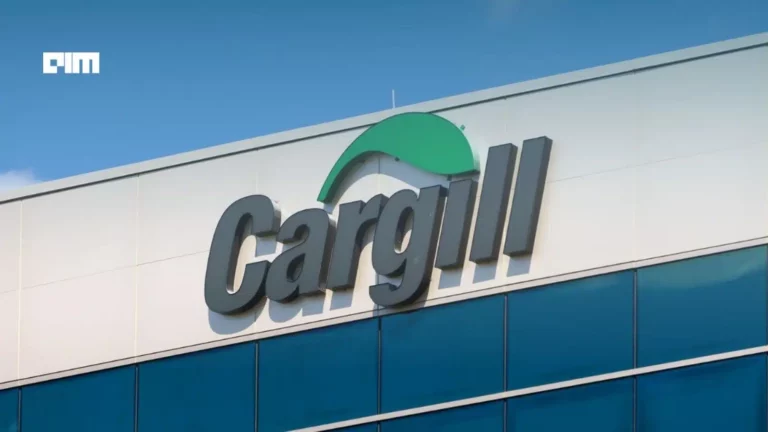As India’s Global Capability Centres (GCCs) expand at unprecedented rates, they face a critical challenge: how to recruit, retain, and develop elite talent in an increasingly competitive environment. This was the major issue of an engaging panel discussion at AIM Media House’s machineCon GCC Summit 2024.
The discussion, moderated by Manish Kumar Purwar, Sr Director of Customer Experience at GE Healthcare, gathered together industry professionals Mansee Singhal Partner at Mercer, Manish Kumar Purwar Sr Director, Customer Experience at GE Healthcare , Amit Talwar Country Director / India Leader at AGCO, Navin Bishnoi Country Head at Marvell Technology
to discuss the talent war that GCCs face. With forecasts indicating that the number of GCCs in India would increase from 1600 to 1900 by 2025, employing millions, the demand for trained individuals is expected to grow. This fast development creates both possibilities and severe problems for GCC countries seeking to attract the best people in a highly competitive market.
The session began with an overview of the GCC ecosystem in India. Panellists stated that the nation has emerged as a popular place for establishing GCCs due to its big pool of technologically aware individuals, low cost, and improved infrastructure across cities. As these centres transition from back-office operations to hubs of core innovation, the need for top-tier talent grows, making sustainable recruiting processes more important than ever.
They emphasised the need of a strong employer value proposition in distinguishing organisations in this competitive environment. AGCO’s method of linking employees to a larger cause, in this case, “feeding the world” was shared.
The debate then transitioned to industry-specific difficulties, including insights from the semiconductor industry. They emphasised the specific challenges in attracting talent to an industry that is sometimes viewed as challenging owing to protracted product development cycles. He presented tactics for attracting both early-career workers and experienced recruits, emphasising the significance of raising knowledge about the business and giving real possibilities for advancement and ownership.
The panelists brought attention to the growing importance of employee well-being programs. She discussed emerging trends such as demographic-based initiatives and comprehensive critical illness coverage, stressing the need for effective communication to ensure employees are aware of and utilize these benefits.
The panel also addressed the post-pandemic shift towards flexible work arrangements. Talwar shared AGCO’s approach of empowering employees with flexibility and trust, focusing on measurable goals rather than physical presence. This approach, he noted, has resulted in some of the lowest attrition rates in their industry.
As the discussion progressed, they outlined strategies for building sustainable talent pipelines. He emphasized the importance of creating clear career paths for both technical and managerial tracks, highlighting efforts to provide opportunities for engineers to advance to distinguished or fellow roles within India.
The conversation then turned to diversity and inclusion, with panelists stressing its importance not just as a social responsibility but as a business imperative. They emphasized looking beyond metrics to create truly inclusive environments, addressing unconscious biases, and ensuring equitable practices throughout organizations.
As the session concluded, the panel touched on emerging trends, including the increasing demand for multidisciplinary skills in technology roles and the growing importance of personalization in work environments to meet individual employee needs and beliefs.
In essence, the panel underscored that as GCCs in India continue their trajectory of growth and evolution, organizations must adopt innovative, employee-centric approaches to talent management. By focusing on purpose, culture, flexibility, and inclusive practices, GCCs can position themselves as employers of choice in an increasingly competitive talent landscape, ensuring sustainable growth and success in the years to come.










